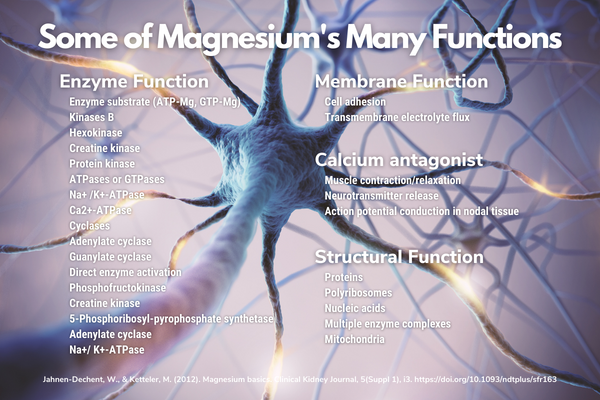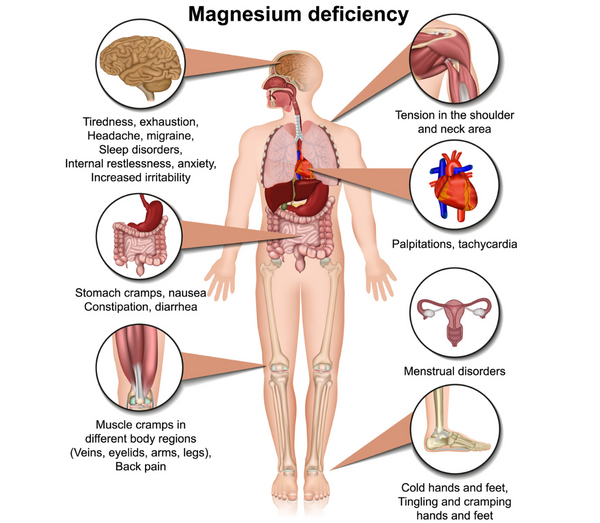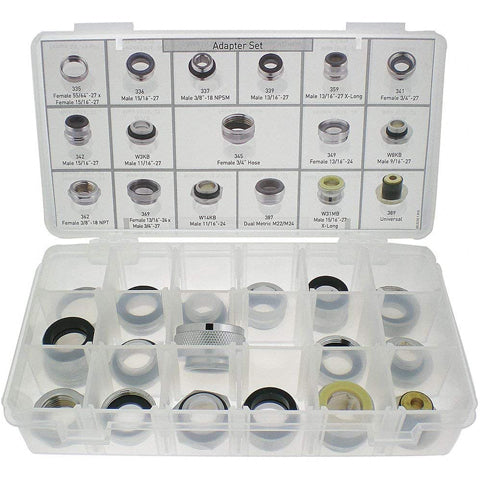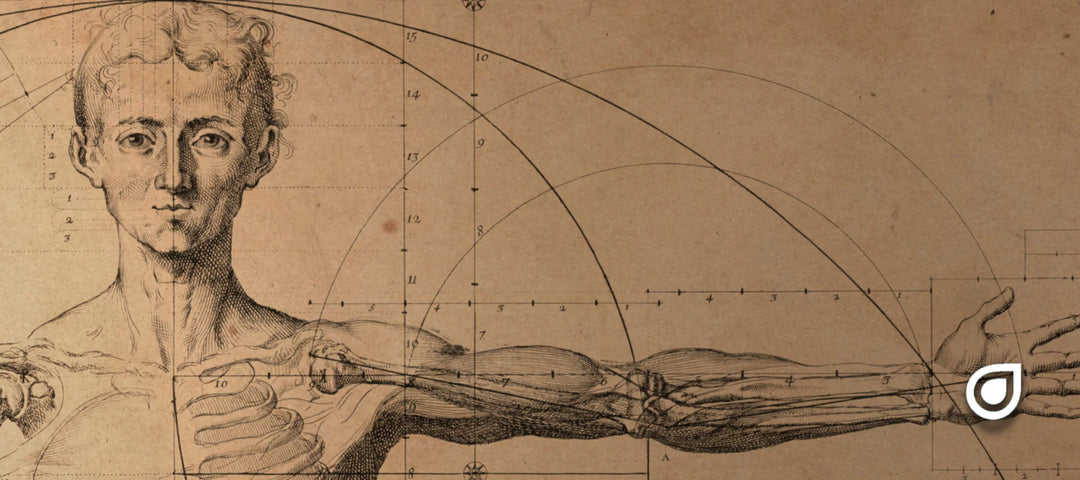Magnesium Bicarbonate: What Is It and Should You Be Using It?
MAGNESIUM BICARBONATE: Everything You Need to Know
Magnesium bicarbonate is a complex hydrated salt only found in liquid form; it is naturally present in pristine drinking water and is not found in any foods.

Before the industrial revolution, when food was food, there were 84 organic plant-based minerals in the foods we ate and bicarbonate salts in the water we drank. It is impossible to get magnesium bicarbonate by eating food.
Magnesium is not easily absorbed in the body unless first attached to a transporting substance, i.e., a bicarbonate ion, and in its natural transporting medium: WATER.
Bicarbonate salts are composed of bicarbonate ions (HCO3) paired with Magnesium, calcium, sodium, and potassium hydroxides.

Therefore, in nature, we never came in contact with: magnesium chloride, sulfate, citrate, aspartate, oxide, carbonate, glutamate, threonate, amino acid chelate, orotate, lactate, glycinate, malate, or taurate.
So why would you take a compound that did not naturally occur in nature?

The electrolyte salt magnesium bicarbonate is required to give the "spark of life" to metabolic functions involving the creation of energy and its transport (ATP, the body's fundamental energy currency) and the creation of proteins—the nucleic acid chemistry of life—RNA and DNA, in all known living organisms.
Magnesium is involved in hundreds of enzymatic reactions affecting virtually all aspects of life.

Every single cell in the human body demands adequate magnesium bicarbonate to function, or it will perish.
The body utilizes Magnesium for all sorts of detoxification pathways.
- Neutralization of toxins
- Correction of overly acidic conditions within the body
- Protection from heavy metals
Magnesium absorption is impeded by systemic iron overload.

A magnesium deficiency increases free radical generation in the body and "causes glutathione loss, which is not affordable because glutathione helps to defend the body against damage from cigarette smoking, exposure to radiation, cancer chemotherapy, and toxins such as alcohol and just about everything else.
Research indicates that ample magnesium bicarbonate will protect brain cells from the damaging effects of aluminum, beryllium, cadmium, lead, mercury, and nickel.

We also know that low levels of brain magnesium bicarbonate contribute to the deposition of heavy metals in the brain that heralds Parkinson's and Alzheimer's.
It appears that the metals compete with Magnesium for entry into the brain cells. If Magnesium is low, metals gain access much more readily.
It is likely safe to say that most people would benefit from an increased supply of magnesium bicarbonate in the PristineHydro® water they drink.
Magnesium Supplementation: Know the Facts
WARNING: MOST MAGNESIUM SUPPLEMENTS ARE USELESS; SOME ARE EVEN DANGEROUS!
Over 10 types of Magnesium are being 'sold' to the uninformed public as nutritional supplements.
Magnesium Chloride is being pawned off as a bioavailable form of Magnesium…
I will ask you one question: do you want Magnesium or chloride?
We are already exposed to excess isolated chloride in many foods we consume.
Where did we come in contact with isolated Magnesium Chloride in nature?
We didn't!
When you put Magnesium Chloride on your skin, the chloride causes burning pain, and you feel a heavy tingling sensation… that is a clear warning of chloride poisoning.
In nature, magnesium bicarbonate is absorbed with water into the bloodstream through the small intestine.
Just think about this...
If magnesium bicarbonate is delivered to the body in water, how can taking a metal magnesium pill or rubbing magnesium chloride on your skin replace drinking magnesium bicarbonate water?
The majority of these heavily marketed magnesium supplements are excreted in the stool or urine, leaving you exposed.
Magnesium bicarbonate is necessary for the "spark of life." The brain and the heart, which both produce lots of magneto-electrical activity, are very sensitive to levels of magnesium bicarbonate.

Excess inorganic calcium, sodium, potassium, phosphates, fluoride, aluminum, and many other toxic metals deplete magnesium reserves – because they bind to Magnesium, which carries them out of the body. So if we look at the toxins and metals in fertilizers, food, oral hygiene products, and water additives, almost everything we consume depletes Magnesium in our reserves.
Magnesium bicarbonate is more important than calcium, potassium, and sodium bicarbonate -- as it regulates all of them.

Some 300 enzymatic processes within your body rely on Magnesium…
Magnesium plays a role in activating many enzymes in the body. It also plays a role in maintaining the electrical charges of cells, especially in the nerves and muscles, and in muscle contraction and relaxation.
Further, this mineral is involved in cellular functions such as energy production, cellular replication, lipid synthesis, and protein formation. It even contributes to bone formation, as it helps regulate calcium metabolism.
Magnesium plays a critical role in heart health, contributing to energy production and heart muscle contraction.
By raising the solubility of calcium in urine, Magnesium helps prevent the formation of kidney stones. Indeed, magnesium bicarbonate supplementation has been found to help prevent kidney stone recurrence.
Research also suggests that dietary magnesium bicarbonate intake is directly linked to lung function and the severity of asthma.
Top 5 Health Benefits of Maintaining Proper Levels of Magnesium in Your Body
1) Magnesium may reverse osteoporosis
Multiple research studies conducted have suggested that Magnesium improves bone mineral density. Magnesium deficiency alters calcium metabolism and the hormones that regulate calcium, resulting in osteoporosis. Intake of recommended levels of Magnesium is vital because it averts osteoporosis.
2) Magnesium prevents cardiovascular diseases
One of the most essential benefits of Magnesium is that it is associated with lowering the risk of coronary heart diseases. Dietary surveys have suggested that sufficient magnesium intake may reduce stroke risk. Magnesium deficiency increases the risk of abnormal heart rhythms, which increases the risk of complications after a heart attack. Therefore, consuming recommended amounts of magnesium dietary supplements may be beneficial to the cardiovascular system.
3) Magnesium regulates high blood pressure (Hypertension)
Magnesium plays a crucial role in regulating blood pressure naturally. All of our products work synergistically, and many, including Magnesium Bicarbonate, are consistently associated with lowering blood pressure.
4) Magnesium treats diabetes
Studies show that individuals with a magnesium deficiency risk developing type-2 diabetes and severe diabetic retinopathy. Magnesium aids in carbohydrate metabolism and influences the release and activity of insulin, thereby controlling blood glucose levels. It has been proven that for every 100 milligrams of increase in Magnesium daily intake, there was a 15 percent decrease in the risk of developing type-2 diabetes.
5) Magnesium treats migraines, insomnia, and depression.
The numerous magnesium health benefits also include the treatment of migraines, insomnia, and symptoms of depression. Magnesium is also known to cure severe forms of psychiatric dysfunctions, including panic attacks, stress, anxiety, and undue agitations.

Magnesium bicarbonate considerably reduces the severity of such attacks and may also help reduce the recurrence rate.
Magnesium bicarbonate also activates enzymes that control digestion, absorption, and the use of proteins, fats, and carbs.
Magnesium bicarbonate also enables insulin to escort glucose into cells, converting it into energy for the body.
Without enough magnesium bicarbonate, both insulin and glucose levels become elevated. When your body cannot use the insulin properly, excess glucose is stored as fat — most visibly around the waste.
Chronic magnesium bicarbonate deficiency can lead to hypoglycemia, anxiety, obesity, heart disease, and diabetes.
In general, Magnesium is essential for the survival of our cells but takes on further importance in our age of toxicity.

Every day we are exposed to never-before-experienced levels of heavy metals, pesticides, and a barrage of other harmful toxins.
Glutathione (GSH), often referred to as “The Master Antioxidant” and our bodies “Miracle Molecule.”
Have you ever heard of Glutathione?
Glutathione is an essential detoxifying agent, enabling the body to eliminate undesirable toxins and pollutants.
Glutathione is found in every cell in the body, where it acts as an antioxidant to neutralize free radicals and prevent cellular damage.

Glutathione is not solely an antioxidant but also essential in other vital biochemical functions such as energy utilization, immune system activity, detoxification, and disease prevention.
Glutathione deficiency contributes to oxidative stress, which plays a key role in aging and the pathogenesis of many diseases (including kwashiorkor, seizure, Alzheimer’s disease, Parkinson’s disease, liver disease, cystic fibrosis, sickle cell anemia, HIV, AIDS, cancer, heart attack, stroke, and diabetes).

Proper glutathione levels are required so other antioxidants can be properly utilized within the body.
What's the Correlation between Magnesium and Glutathione?
-->> Glutathione requires Magnesium for its synthesis.

The ravages of toxic fertilizers, contaminated acidic water, metabolic acidosis, poor diet, stress, medications, vaccines, infections, radiation, and other toxins deplete glutathione reserves.
Our bodies need the right building blocks for natural glutathione production.
It is well known that glutathione supplements have repeatedly performed poorly in studies testing their absorption.
Magnesium deficiency causes a lack of glutathione production, which is not affordable because glutathione protects the body from things that can cause problems, including pesticides, toxic chemicals, exposure to radiation, chemotherapy, smoking, alcohol, and just about everything else.
Have you read our article addressing the topic of Plastic-Associated Chemicals aka "Forever Chemicals?"

Glutathione also helps the immune system to fight bacteria, viruses, and fungi, which protect us from infections and diseases.
Low Magnesium is associated with dramatic increases in free radical generation as well as glutathione depletion.
The involvement of free radicals in tissue injury induced by magnesium deficiency causes an accumulation of oxidative products in the heart, liver, kidney, skeletal muscle tissues, and red blood cells.
Glutathione is also vital since it is one of the few antioxidant molecules known to neutralize mercury.

Without Magnesium and glutathione, the body accumulates toxins and acid residues that degenerate tissues and accelerates premature aging.
There are a variety of other things that can place demands on glutathione. These include physical injuries or surgery, exposure to toxic chemicals such as pesticides, solvents, or heavy metals like mercury, arsenic, or lead, and exposure to infectious agents or vaccinations.

One can optimize glutathione production over the long term by supporting the body with the proper nutrients and movement needed to reside in a state of harmonious balance.
Magnesium, potassium, and sodium bicarbonate also have a close relationship. Magnesium bicarbonate is necessary for the function of the sodium/ potassium pump.
If a magnesium bicarbonate deficiency occurs, then pumping sodium bicarbonate out of the cell and pumping potassium bicarbonate into the cell is impaired.
That is how our cells get hydrated; it is part of the ATP cycle. The ATP-ADP cycle is a process by which energy is stored and used in the bodies of many animals.
One of the leading researchers on magnesium deficiency, Dr. Mildred Seelig, found that many of the side effects of drugs are actually symptoms of magnesium deficiency. The drugs either increased the demand for Magnesium in the body or they depleted Magnesium.
If there is little or no Magnesium, then the calcium builds up in the cells causing angina, arrhythmia, hypertension, headaches, and asthma. That is why Magnesium is often called nature's calcium channel blocker.
Magnesium regulates blood sugar levels and heart rhythm, boosts the immune system, and keeps bones strong.
Magnesium also can help protect us from hypertension, high cholesterol, cardiovascular disease, and diabetes.
Experiments on animals have shown that severe magnesium deficiency reduces physical performance, particularly the efficiency of energy metabolism.
Symptoms of Magnesium Deficiency

- heart disturbances-mental-symptoms
- issues with nerve conduction and muscle contraction
- muscle cramps and spasms
- poor coordination
- weakness
- chronic fatigue
- headaches – including migraines and tension headaches
- appetite loss
- insomnia
- cravings for sweets
- mental confusion
- irritability
- personality changes
- being easily stressed
People with low levels of Magnesium are more prone to ailments such as insomnia, premenstrual syndrome, menstrual cramps, hair loss, swollen gums, high blood pressure, kidney stones, heart disease and even cancer.
It has been found that people who suffered sudden and fatal heart attacks had deficient magnesium levels in their hearts.

When magnesium levels are low, a spasm of the coronary arteries could occur, affecting the flow of blood and oxygen to the heart — this could trigger a heart attack.
Persons with fibromyalgia and chronic fatigue syndrome are also commonly found to have low magnesium levels.
In addition, women with osteoporosis have been found to have lower bone magnesium levels than those without the condition.
The Bottom Line About Magnesium Bicarbonate: You Should be Taking It Daily
It's the best insurance policy we have to ensure all bodies of life within our magnificently created detoxification system are energetically primed to address today’s toxic environment...
Our modern water supplies are devoid of this critical magnesium delivery component, so we’ve got to address the issue ourselves.
Mg Bicarbonate is NOT found in food… never was.
PROACTIVE MEASURES:
-
Stop drinking and cooking food with tap water!
Of all the recommended “Bio-Hacking” topics circulating the Internet, Water is the first that should be addressed. Get your water dialed in —> Water Revival System™, ASAP! PristineHydro® is properly mineralized and is 100% free of all harmful contaminants that are bombarding us daily.

- If you have an ineffective water filtration system that does not address magnesium bicarbonate - you need to supplement... We've created ElectrolyteBalance® just for you, and it's available in powder and convenient liquid forms. This should be a mandatory part of your daily health protocol.

- Stop bathing and showering in contaminated water. Most people are clueless that our bodies can absorb 600% to 1000% more contamination in a single ten-minute shower than by drinking the same tap water for an entire day. Visit our sister site, LivePristine®, and replace your shower heads with one of our recommended shower filters.

- Share this information with everyone you care about.
“The more consciousness you bring into your body, the stronger your immune system becomes. It is as if every cell awakens and rejoices. Your body loves your attention. It is also a potent form of self-healing.”
- Eckhart Tolle
Onward,
Team Pristine
Please send us a note if you have comments, questions, or suggestions about anything we’ve covered. If there are topics that you’d like us to drill into further, please let us know, and we’ll add them to our editorial calendar.











